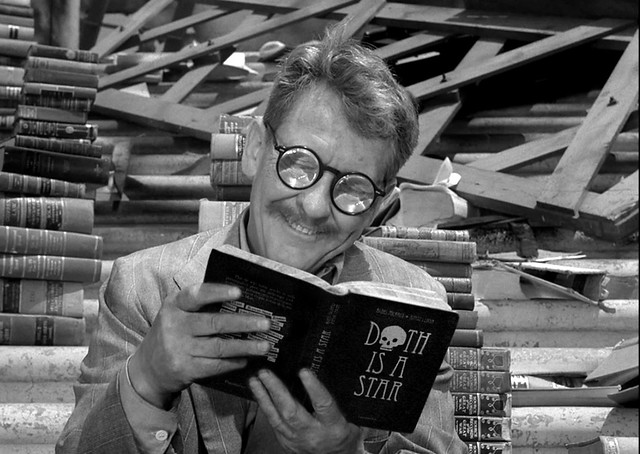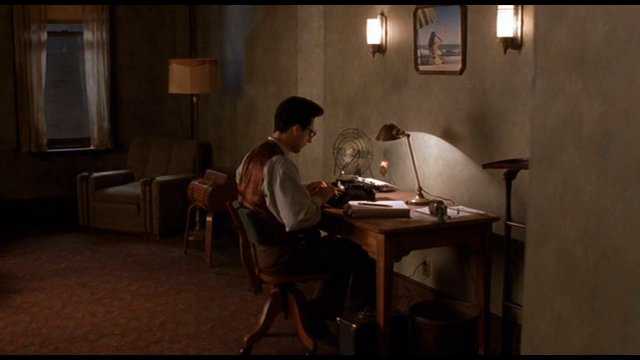So. I watched American Fiction last night, as it was movie night with Mom, and both Rache and I had wanted to see it. As a writer and author with four traditionally published books and three agents (fic/nonfic/book-to-film), this spoke right into my existence...and to the peculiar place intersectional orthodoxies inhabit in the contemporary publishing world.
There were some excellent performances, some early moments of real feeling, and it was often entertaining. But at other points it felt...off. It frequently pulled punches, drifted into intermittent bathos, and had a logically incoherent ending.
As a satire of the publishing industry, it just didn't feel like it cut close enough to the mark. For readers of fiction with a surface-level grasp of what it means to publish and be published, perhaps. But for me, the satire didn't cut deep, and the further we got past the premise, the more shallow it felt.
Much of that came from the "authors life" that was presented in the film. Our protagonist is purportedly a "struggling writer," meaning his books are excellent but unsuccessful. When he presents on a panel at a conference, his panel is attended by fewer than a dozen extras who have clearly been told to look like they'd rather be anywhere else. He's rejected, over and over again. His whole schtick is supposed to be that he's barely making it.
Yet when he arbitrarily goes into a franchise bookstore, there are a solid dozen of his books on the shelves. The "black" shelves, which troubles him, but shelves nonetheless. If you can walk into a random bookstore and it stocks multiple copies of several of your books, you're not struggling, honeychild.
He meets with his agent in a big shiny downtown office, because that's how all agents are, right? I've got three, and while my LA-based book-to-film agent might have an office, I wouldn't know. I've never met him in person. My fiction agent...London-based, a successful and reputable agency...works from home. We Skype. My Austin-based nonfic agent? Works from home. We talk on the phone. We Zoom. We've met once in the last ten years. Again, if you're a mid-list author, it's not 1997. You don't get flown places or spend the money to do so unless you're in the very tippy top of the list. Publishing doesn't work that way.
A substantial subplot thread involves the author asserting control over the title of the book, to the point where they can pitch a hissy and get it changed late in the pre-production process. If you're a name, maybe. But if this is your debut novel, ain't no way that's happening. Just no way. In the same way that you're not gonna be writing the screenplay for your novel, particularly if you don't have a clue how screenplays work. Because screenwriting is an art in and of itself, as I've learned in conversation with the gifted show runner/screenwriter who optioned my own novel.
And if your books are scraping by, is anyone you randomly meet...like the attractive and recently single public defender who lives across the street of your beautiful Hamptons-Vineyard beach house...likely to ever have read them? O Lord no. With three thousand new titles burping out of tradpub, POD, and self-pub outlets every single day? Not gonna happen. That space is too supersaturated.
Other things bugged me. Like, does he even have an editor? AN EDITOR? Apparently not. I mean, books don't have editors, right? Or copy editors. You just write it, and rich white publisher ladies publish it and give you tons of money.
Then there's the money involved. Seven hundred thousand dollars for an unknown author is a preposterous advance, a fantasy advance. Yeah, it's satire, but c'mon. And four million for the immediate purchase...not option, but purchase...of film rights? The industry usual and customaries on that number are a set percentage of total production budget. Four mil assumes, what, a final production budget in the hundred million dollar range? Given the current market, and the nature of the film that would be made, that's preposterous. You'd take a bath. Maybe if it's a write-off, but jeez louise. And the film gets made IMMEDIATELY?
There's more, particularly around what actually happens to a book and movie deal if an author fundamentally misrepresents their identity. Which, er, isn't what happens in the film.
Much of the dissonance in the film may be a factor of the vintage of the book upon which the film is based. Percival Everett published ERASURE back in 2001, which means that the narrative was conceptualized, constructed and written in the late 1990s or very early 2000s. That was, obviously, a very different time in the life of the publishing industry.
Perhaps that's why American Fiction felt rather more...fictional...than I'd expected.





















